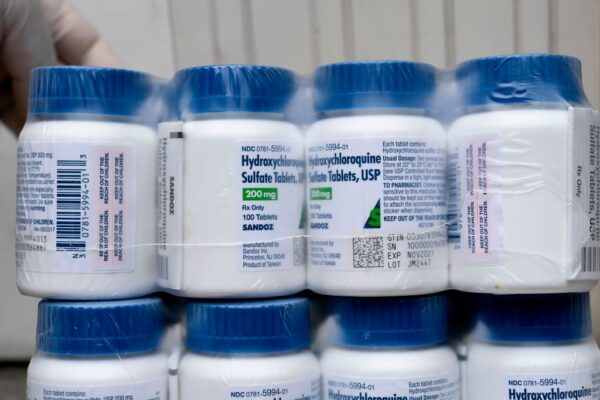
The Food and Drug Administration has withdrawn its emergency use authorization for two closely related malaria drugs as treatments for Covid-19, the agency said Monday, stating that an ongoing analysis of the EUA and emerging scientific data had led it to determine the drugs would not likely be effective.
The FDA said in a statement that it had revoked the EUA that allowed for donation of chloroquine and hydroxychloroquine to the Strategic National Stockpile for use in certain patients hospitalized with Covid-19. The EUA had enabled the drugs to be used in patients for whom a clinical trial was unavailable or unfeasible. The revocation was issued at the request of the Biomedical Advanced Research and Development Authority, as the original March 28 EUA had been.

Behavioral Health, Interoperability and eConsent: Meeting the Demands of CMS Final Rule Compliance
In a webinar on April 16 at 1pm ET, Aneesh Chopra will moderate a discussion with executives from DocuSign, Velatura, and behavioral health providers on eConsent, health information exchange and compliance with the CMS Final Rule on interoperability.
BARDA’s director, Rick Bright, stated in a whistleblower complaint last month after his removal from his position that he faced retaliation for resisting efforts to promote broad use of hydroxychloroquine and chloroquine. President Donald Trump, his administration and his media surrogates had aggressively promoted use of the drug despite a lack of scientific evidence to support it.
In addition to expressing doubts about the drugs’ efficacy in Covid-19, the FDA cited concerns about safety, particularly serious cardiac events. The drugs are known to be associated with cardiac toxicity, though a large study based on an analysis of electronic health records from more than 96,000 Covid-19 patients that was published in The Lancet last month was recently retracted amid doubts about the veracity of the data that were used, which came from a Chicago-based firm, Surgisphere. That study had led the World Health Organization to temporarily halt enrollment of patients into an arm of a large clinical trial it was running that tested hydroxychloroquine, while the French government revoked its own emergency authorization of the drug.
Nevertheless, a randomized, placebo-controlled study led by the University of Minnesota showed that hydroxychloroquine was not effective at preventing SARS-CoV-2 infection in people who had been exposed, known as post-exposure prophylaxis. Other single-arm studies have also failed to show that the drug is effective at treating Covid-19.
“We’ve made it clear throughout the public health emergency that our actions will be guided by science and that our decisions may evolve as we learn more about the SARS-CoV-2 virus, review the latest data and consider the balance of risks versus benefits of treatments for Covid-19,” said Anand Shah, the FDA’s deputy commissioner for medical and scientific affairs, in a statement. “The FDA always underpins its decision making with the most trustworthy, high-quality, up-to-date evidence possible.”

A Deep-dive Into Specialty Pharma
A specialty drug is a class of prescription medications used to treat complex, chronic or rare medical conditions. Although this classification was originally intended to define the treatment of rare, also termed “orphan” diseases, affecting fewer than 200,000 people in the US, more recently, specialty drugs have emerged as the cornerstone of treatment for chronic and complex diseases such as cancer, autoimmune conditions, diabetes, hepatitis C, and HIV/AIDS.
Photo: Yuri Cortez, AFP, via Getty Images












